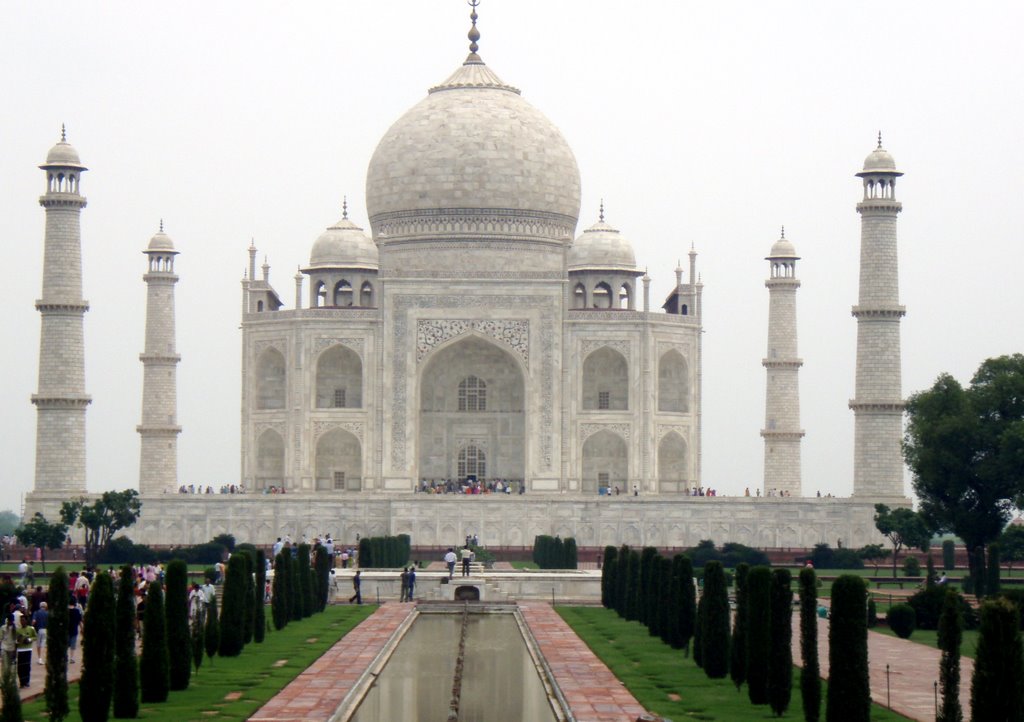Can the IT fix India's problems?
According to Edward Luce, remnants of the Gandhian philosophy still hold the imagination of the Indian elite that the Indian village is the sacred cornerstone of Indian society and life. And while that sentiment is slowly decreasing among the masses, the elite continue to view the village with romantic lenses, despite the fact that none of them reside in villages, and millions of Indian villagers migrate to the cities and would rather live in slums than be back at the village, since it does not provide any economic opportunities for their families.
There's also a widespread notion that if information technology will revolutionize the village, reducing the tide of migration to the cities. While I believe that technology is the answer to many global problems, I fail to see how IT alone is going to solve the problems of the Indian village, which often lack electricity, paved roads, and water and sanitation. Millions of villages still practice nothing more subsistence farming, do not own the land, and those who do often have to dissect the family plots between their children and future generations, making their land smaller and less reliable.
Unless the IT industry first invests millions in building up the village infrastructure, including investment in agrotechnology to mechanize agriculture,its impact on rural development is questionable. Villagers will continue to flock to the cities and remit their earnings back to their families, despite their ability to connect to the web back the village. While I think access to the internet and information will do nothing but enhance the villagers life, as far as priorities are concerned, basic infrastructure must come first.
Furthermore, India needs to improve its urban infrastructure, governance, and extend its manufacturing sector to provide jobs for millions of unskilled or semiskilled people, much as China has done. While China has largely embraced the cheap goods manufacturing and employed millions of semiskilled workers and pulled them out of poverty, India's manufacturing sector has mainly been capital intensive not labor intensive. Luce argues that this is due to the strict labor laws instituted by Jawaharlal Nehru, prime minister of India after Independence, and while strict laws like "License Raj" have been abolished as of 1991 giving way to the IT revolution in India, strict labor laws that make it impossible to fire someone despite their incompetence keeps Indian businesses from expanding their labor force during boom times, which they would be stuck with during recessions.
Economist and other experts, including India's prime minister Manmohan Singh believe that rapid urbanization and a strong manufacturing sector hold the keys to India's future development. This has generally been true of most countries' path to development. However, before mass urbanization India must reform it's national economic policies to encourage urban employment growth and do away with the bureaucratic and political barriers that have discouraged investment in urban infrastructure.
The villagers are not going back to the village, even if agriculture became mechanized, there still would not be enough jobs for them in the village. More of them will continue to migrate to the cities and India can no longer afford the unplanned chaos that occurs in its cities, not to mention the fact that migrant laborers contribute to the HIV/AIDS epidemic as we've previously discussed.
Reference: Edward Luce In Spite of the Gods. The strange rise of modern India. Doubleday, 2007.
P.S. Thank you Paul Lee for the book recommendation.


No comments:
Post a Comment